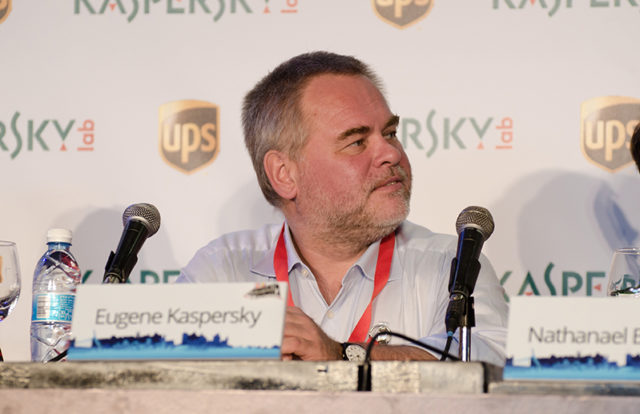
In an acknowledgement that could raise suspicion that Moscow-based multinational cybersecurity firm aids Russian spies, Kaspersky Labs CEO Eugene Kaspersky on November 3, 2017 admitted taking inactive files in pursuit of hackers.
In an interview conducted at Kaspersky Lab’s offices in Moscow, as part of Reuters Cyber Security Summit, Kaspersky said his company’s antivirus software has copied files that did not threaten the personal computers of those customers.
While claiming that “we did nothing wrong”, Kaspersky said “the files containing the National Security Agency (NSA) hacking tools were taken because they were part of a larger file that included suspicious software, a tool researchers dubbed GrayFish. Such actions occur only in very, very, very rare cases.”
Kaspersky explained that the NSA tools were copied because they were part of a larger file that had been automatically flagged as malicious and he had ordered the file to be deleted “within days” because it contained the U.S. government secrets.
“From time to time, yes, we have their code directly from their computers, from the developers’ computers. Sometimes we are able to catch cyber criminals, that’s why I am not so comfortable to speak about this to media. Many of them are very clever, they can learn from what I am saying” he said in the interview.
On October 25, 2017, it was reported that one of the Kaspersky analyst discovered it contained the source code for a hacking tool later attributed to what it calls the Equation Group.
To restore people’s and government’s trust again, Kaspersky on October 23 allowed to have his company’s source code audited independently by internationally recognized independent authorities in the first quarter of 2018. As part of comprehensive transparency initiative, the firm plans to open three transparency centers across the U.S., Europe and Asia by 2020.
Following allegations Russian hackers interfered in 2016 U.S. elections, the Department of Homeland Security (DHS) had banned the Kaspersky Lab software in September 2017.










